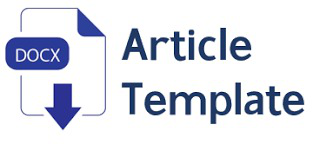Pelaksanaan dan Pertanggung Jawaban APBD terhadap Pengelolaan Keuangan Daerah
DOI:
https://doi.org/10.14421/sh.v6i2.2025Abstract
Management of Regional Finance is the whole activity that includes planning,
implementation, administration, reporting, accountability, and supervision of local
finances. Regional financial management as regulated in this ministerial regulation
includes the power of regional financial management, the general principles and structure
of the APBD, the drafting of APBD, the determination of APBD, the formulation
and determination of APBD for regions that do not have DPRD, APBD
implementation, APBD changes, cash management, regions, regional financial
accounting, accountability of APBD implementation, development and supervision of
local financial management, regional losses, and financial management. Regional
financial management starts with the planning / budgeting of regional expenditure
budget APBD. APBD is prepared in accordance with the needs of governance and
local revenue capability. Preparation of APBD as directed to RKPD in order to realize
the service to the public for the achievement of the purpose of state. APBD has the
functions of authorization, planning, supervision, allocation, distribution, and
stabilization. APBD, APBD change, and accountability of APBD implementation
every year is stipulated by regional regulation. APBD compiled by the local government
has undergone a change from incramental to a performance-based budget in accordance
with the demands of reform. That APBD as a means of container to accommodate
various public interest (public accountability) is realized through various activities and
programs, at which time certain benefits really felt by the general public. Local
governments should work in a concrete and structured manner to generate APBDs that
reflect the real needs of the community in accordance with their respective potentials and
meet the demands of local budget-oriented interests and public accountability.
References
Ahmad Yani. 2004. Hubungan Keuangan Antara Pemerintah Pusat dan
Daerah. Jakarta : PT Raja Grafindo Persada.
Deddy Supriady Bratakusumah & Dadang Solihin. 2004. Otonomi
Penyelenggaran Pemerintahan Daerah. Jakarta : PT Gramedia
Pustaka Utama.
Arifin P. Soeria Atmaja, 1986, Mekanisme Pertanggungjawaban
Keuangan Negara: Suatu Tinjauan Yuridis, Gramedia, Jakarta.
Arifin Soeria Atmadja, 2005, Keuangan Publik Dalam Perspektif Hukum:
Praktik dan Kritik, Jakarta: Fakultas Hukum UI, Jakarta.
Bohari, 1995, Hukum Anggaran Negara, Rajawali Pers, Jakarta.C.
Godhart, 1972, Garis-garis Besar Ilmu Keuangan Negara,
terjemahan Ratmoko, Jambatan, Jakarta.
Idham Chalid, 1951, Parlemen, Organisasinya dan Caranya Bekerja,
Astanabuku Abede, Semarang.
Jimly Asshiddiqie, 1996, Pergumulan Peran Pemerintah dan Parlemen
Daam Sejarah, Telaah Perbandingan Konstitusi Berbagai Negara, UI
Pers, Jakarta.
La Ode Husen, 2005, Hubungan Fungsi Pengawasan Dewan Perwakilan
Rakyat dengan Badan Pemeriksa Keuangan Dalam Sistem
Ketatanegaraan Indonesia, Utomo, Bandung.
M. A. Moegni Djojodirdjo, 1982, Perbuatan Melawan Hukum, Padnya
Paramita, Jakarta.
M. Yunan Nasution, 1953, Konstituante-Parlemen dan Pemilihan Umum,
Pustaka Antara, NV, Jakarta.
Mariam Darus Badrulzaman, 1996, KUH Perdata Buku III Hukum
Perikatan Dengan Penjelasan, Alumni, Bandung.
Tim Pusdiklat Pengembangan Sumber Daya, Materi Pokok Pengelolaan
Keuangan Negara, BPPK Depkeu, 2009
Prof. Dr. Achmad Djuaeni Kadmasasmita, SE, MEc. Akuntabilitas
Keuangan Negara : Konsep dan Aplikasi. Paparan Reformasi
Pengelolaan Keuangan Daerah, Direktorat Akuntansi dan Pelaporan
Keuangan Departemen Keuangan, 2009








